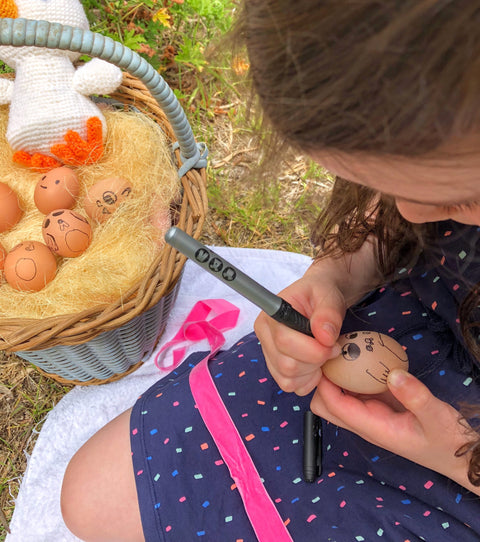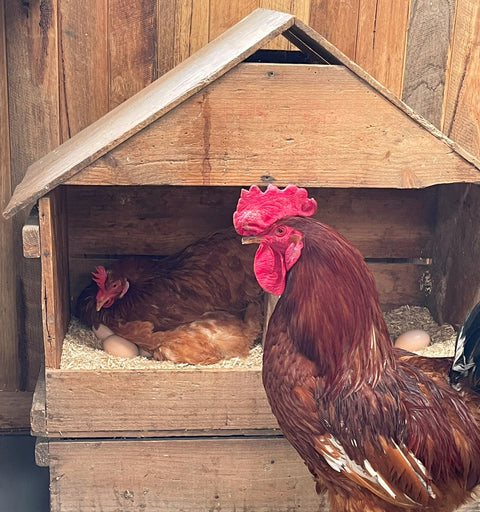Eggs are such a versatile ingredient. From fluffy omelettes to rich cakes and protein shakes, a good egg can both make and elevate any meal. But, how you store your eggs has a dramatic impact on their freshness, safety and how well they perform in your recipes. Let's dive into the best practices for egg storage and handling!
The Refrigerator vs The Pantry: It Depends
You're right - you might see eggs stored differently in the grocery store. The reason? It depends on where the eggs come from and how they've been treated. In Australia, a common practice is to wash commercial eggs which removes the protective outer layer on the shell. This means they must be refrigerated to prevent bacterial growth.
But with backyard eggs, you have flexibility! Here's why:
- The Protective "Bloom": Freshly laid eggshells have a natural protein coating called the bloom. This is nature's way of keeping bacteria out and the good stuff in.
- Temperature Matters: Temperature changes cause eggs to "sweat," which can attract bacteria. If your backyard eggs stay at room temperature, keep them there. If you refrigerate them, they need to stay refrigerated.
To Wash or Not to Wash, That is the Question
Washing your backyard eggs sounds like a good idea but it's actually not recommended! Remember the bloom? Washing removes that protective layer. Instead, only wipe off soiled spots with a dry, rough sponge.
Where to Store Your Eggs (And How!)
- Fridge: Refrigerated eggs will last about 5 weeks making them the perfect long-term storage solution. For maximum freshness, store them in their original carton or an airtight container to prevent them from absorbing other fridge odours.
- Room Temperature: If you plan on using your unwashed eggs within a few weeks (even faster in warmer weather), they'll do just fine at room temperature.
- Best in the Carton: Egg cartons aren't just for transportation! They shield eggs from moisture loss and odour absorption and make it easy to check for cracks.
- Pointy Side Down: Store eggs with the large end facing up and the pointy end down. This helps the yolk stay centered and slows moisture loss.
Extra Tips for Handling Eggs Safely
- Expiration Dates: While a good egg can last weeks beyond the carton date, always check for off-odours or signs of mould if you're unsure.
- Don't Leave Them Out: Refrigerated eggs should never be left at room temperature for more than 2 hours.
- Wash Your Hands: Thoroughly wash your hands after handling eggshells.
How to Keep Your Eggs Clean from the Start
Want to avoid those messy eggs in the first place? Here's how:
- High Roosts: Chickens naturally want to roost high up at night. Providing them with roosts higher than the nesting boxes will help keep the nests cleaner.
- No Nest Sleepers: There’s always a percentage of hens that can’t resist sleeping in their nest boxes at night. Block-off the nest boxes once eggs have been laid or remove the offending hen after dark and place her with the others.
- Collect Regularly: Daily egg collection makes a huge difference!
- Hemp Bedding: Hemp is a naturally antibacterial nesting material which is great for egg safety
Fresh Eggs Are the Best Eggs
Nothing beats the delicious flavour and vibrant yolk of freshly laid eggs from your backyard chickens. With these storage and handling tips, you'll be able to enjoy your backyard bounty at its absolute best for longer.
Let me know if you have any more egg questions or tips!







Comments (0)
There are no comments for this article. Be the first one to leave a message!